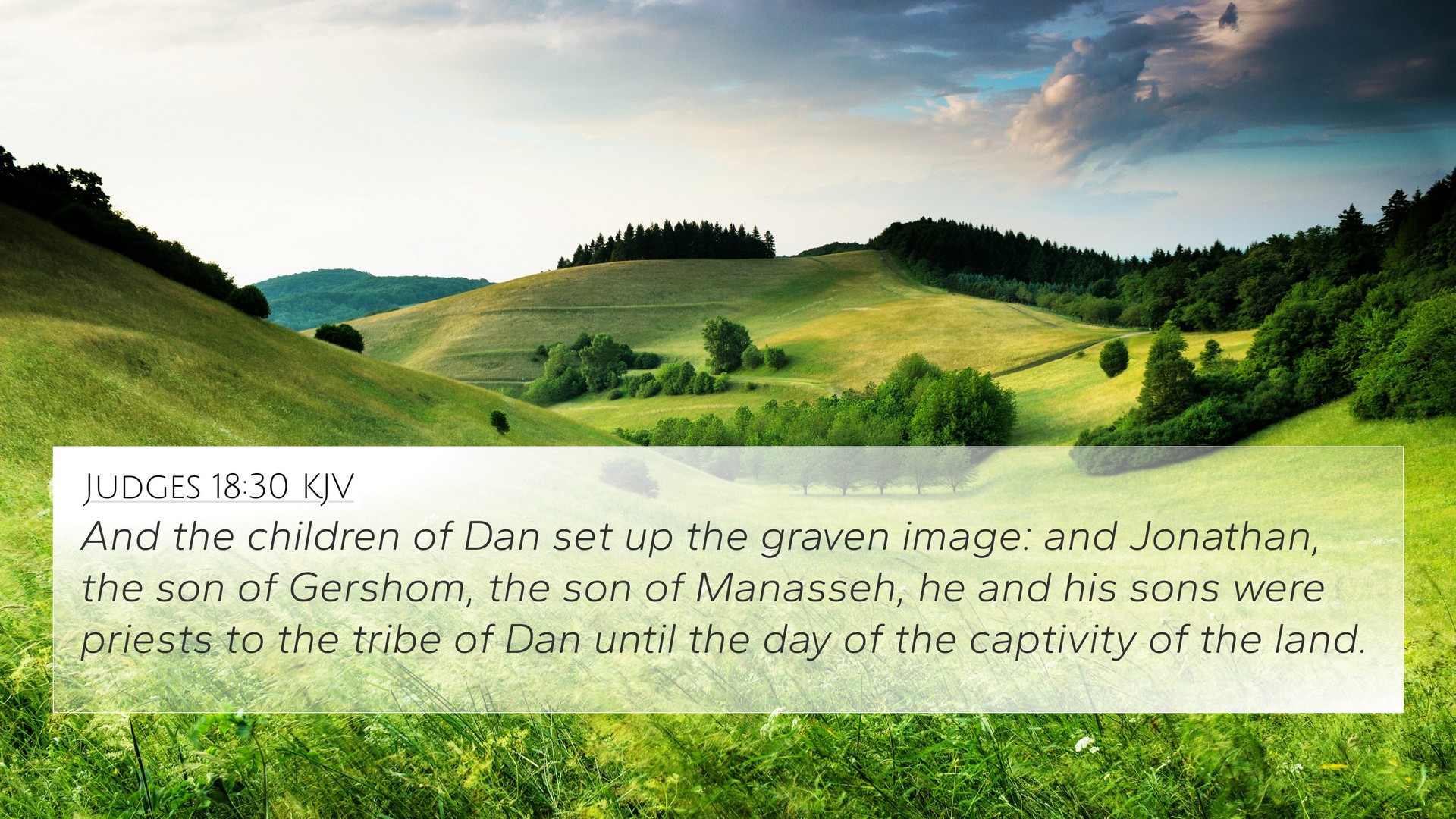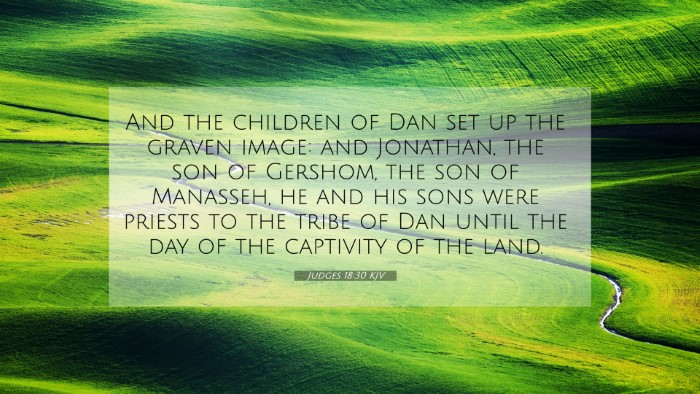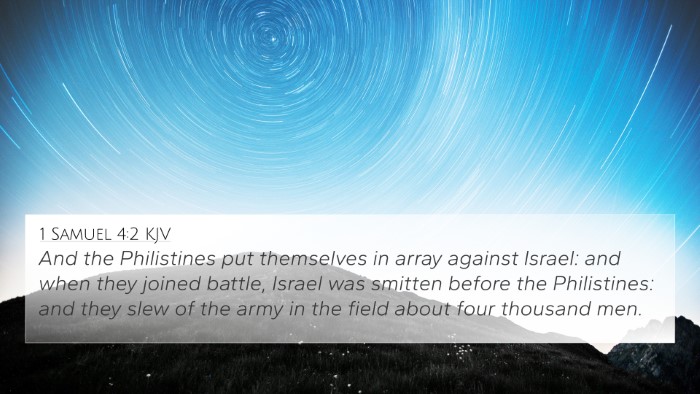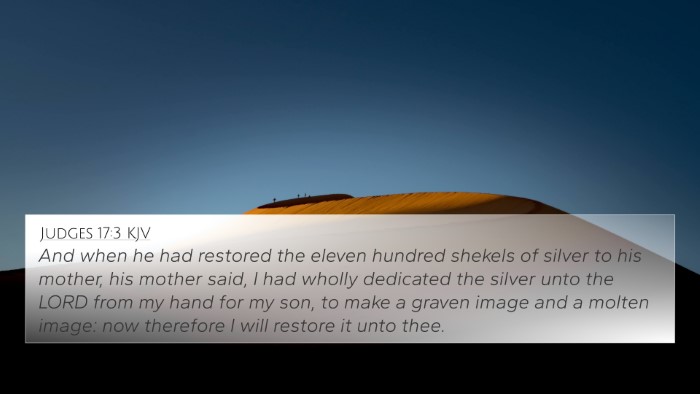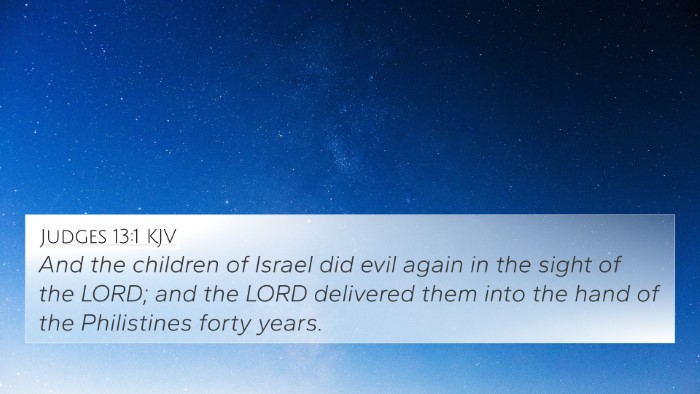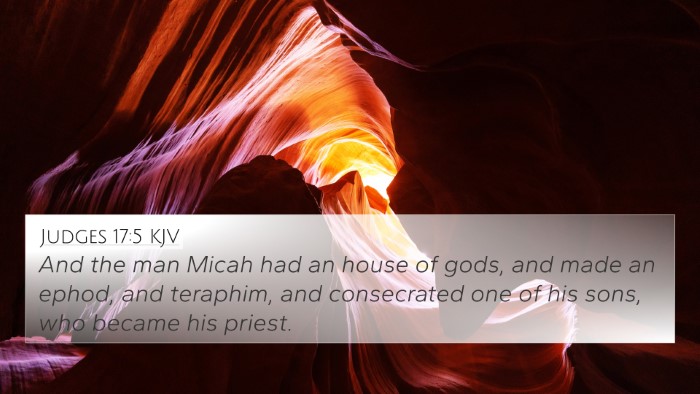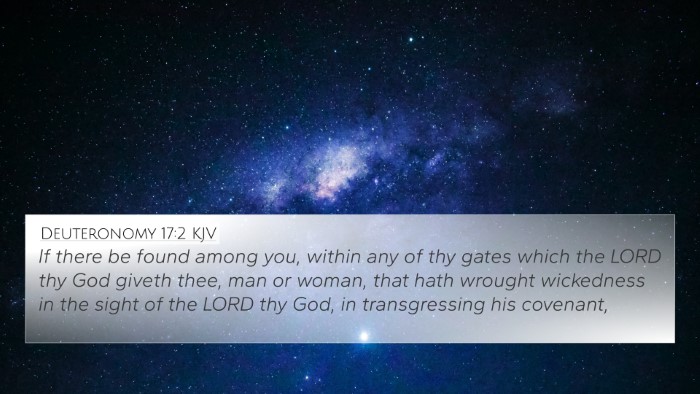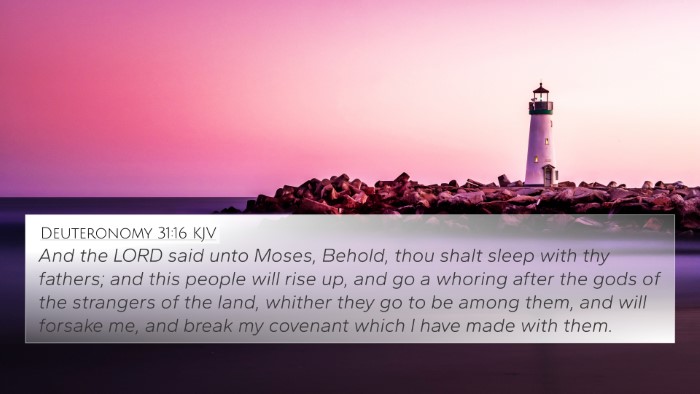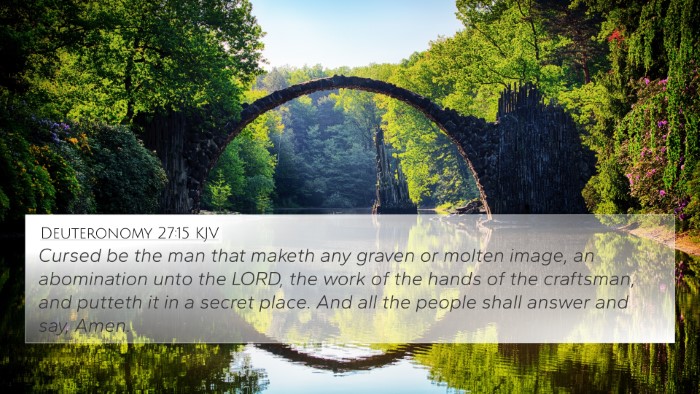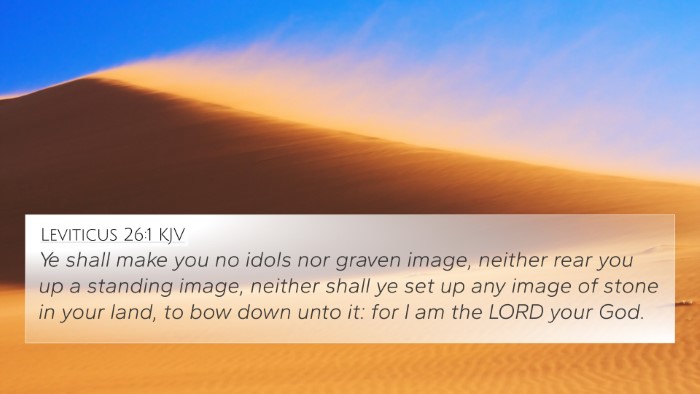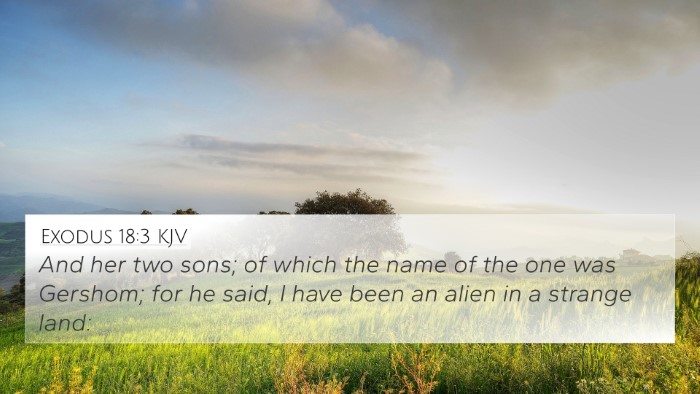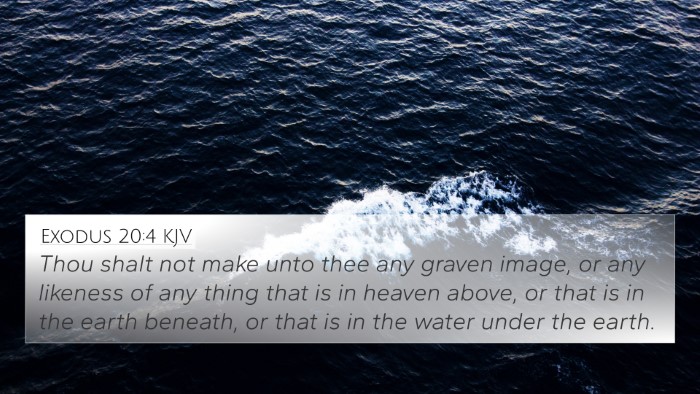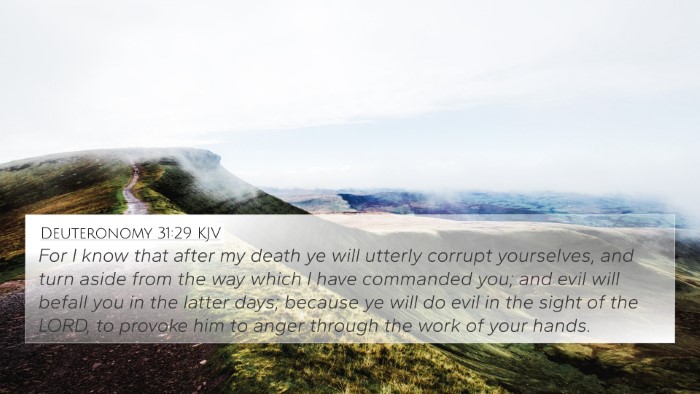Understanding Judges 18:30
Verse: Judges 18:30 - "And the children of Dan set up the graven image: and Jonathan, the son of Gershom, the son of Manasseh, he and his sons were priests to the tribe of Dan until the day of the captivity of the land."
Summary of Verse Meaning
This verse encapsulates a pivotal moment in the history of Israel, highlighting the Danites' idolatrous practices and the establishment of a priesthood that was detached from the Levitical order. In their quest for identity and territory, the tribe of Dan resorted to creating their own worship system, reflecting critical themes of disobedience and spiritual decline.
Commentary Insights
- Matthew Henry: Henry emphasizes that the Danites, in their search for a place and identity, chose idolatry over the true worship of God. He indicates that this choice indicates a severe spiritual decline, marking their departure from the worship dictated by the Law.
- Albert Barnes: Barnes notes that the mention of Jonathan and his sons becoming priests is significant as it highlights the illegitimacy of the priesthood established in Dan. This priesthood, being derived from a non-Levitical lineage, reflected a broader trend of apostasy among the Israelites.
- Adam Clarke: Clarke elaborates that the graven image signifies the corruption of true worship, suggesting that the Danites misused their creative capacity, leading to further spiritual degradation. He also points out the tragic irony of their situation—that in abandoning true worship, they set the stage for future calamities.
Thematic Connections
This verse can be connected to various themes within the Bible, notably:
- Idolatry and Its Repercussions
- The Role of the Priesthood
- Spiritual Authority and Legitimacy
- The Fall of Israel into Apostasy
- The Search for Identity and Belonging
Bible Verse Cross-References
To deepen the understanding of Judges 18:30, several related verses provide context and support:
- Exodus 20:4-5: God’s commandment against idols.
- Leviticus 10:1-3: Discusses the importance of proper priesthood and worship.
- 1 Samuel 13:9: Highlights the consequences of improper sacrifices.
- Proverbs 14:12: Warns readers that a way may seem right but leads to destruction, a key theme in Israel's history.
- Hebrews 7:12: Addresses the change in the priesthood, contrasting Levites with the new priesthood in Christ.
- John 4:24: Emphasizes worshiping God in spirit and truth, against the backdrop of idolatry.
- Hosea 4:17: God’s word regarding Israel’s idolatrous behavior.
Connecting Themes through Cross-Referencing
This verse invites a comparative analysis of how idolatry manifests both in the Old Testament and in the New Testament's teachings about true worship. The act of crafting a graven image can be linked to modern-day spiritual compromises, reminding believers today of the importance of adhering to God's truth as revealed in Scripture. For instance, John 4:24 cautions against the dangers of misplaced worship.
Exploring Idolatry in Scripture
Idolatry is a recurring theme throughout the Bible, and Judges 18:30 serves as a sobering example of its destructive path:
- Consider 1 Kings 12:28-30, where Jeroboam sets up golden calves—another case of misguided worship.
- The emphasis on spiritual vigilance in Romans 1:21-23, where Paul addresses the folly of exchanging the glory of God for images.
- This aligns with the teachings found in Colossians 3:5, which admonishes believers to put to death earthly things, including idolatrous desires.
Application and Reflection
Through the lens of Judges 18:30, believers are prompted to examine their spiritual practices and priorities. Are there modern equivalents of idolatry present in their lives? This reflection fuels both a personal and communal quest for fidelity to God, pushing believers to embrace the teachings of Scripture wholly.
Conclusion
Judges 18:30 is not merely a historical recount but serves as a warning and a call to spiritual integrity. By engaging deeply with this text and its connections, believers can strengthen their understanding of worship, authority, and the dangers of straying from God's guidance.
